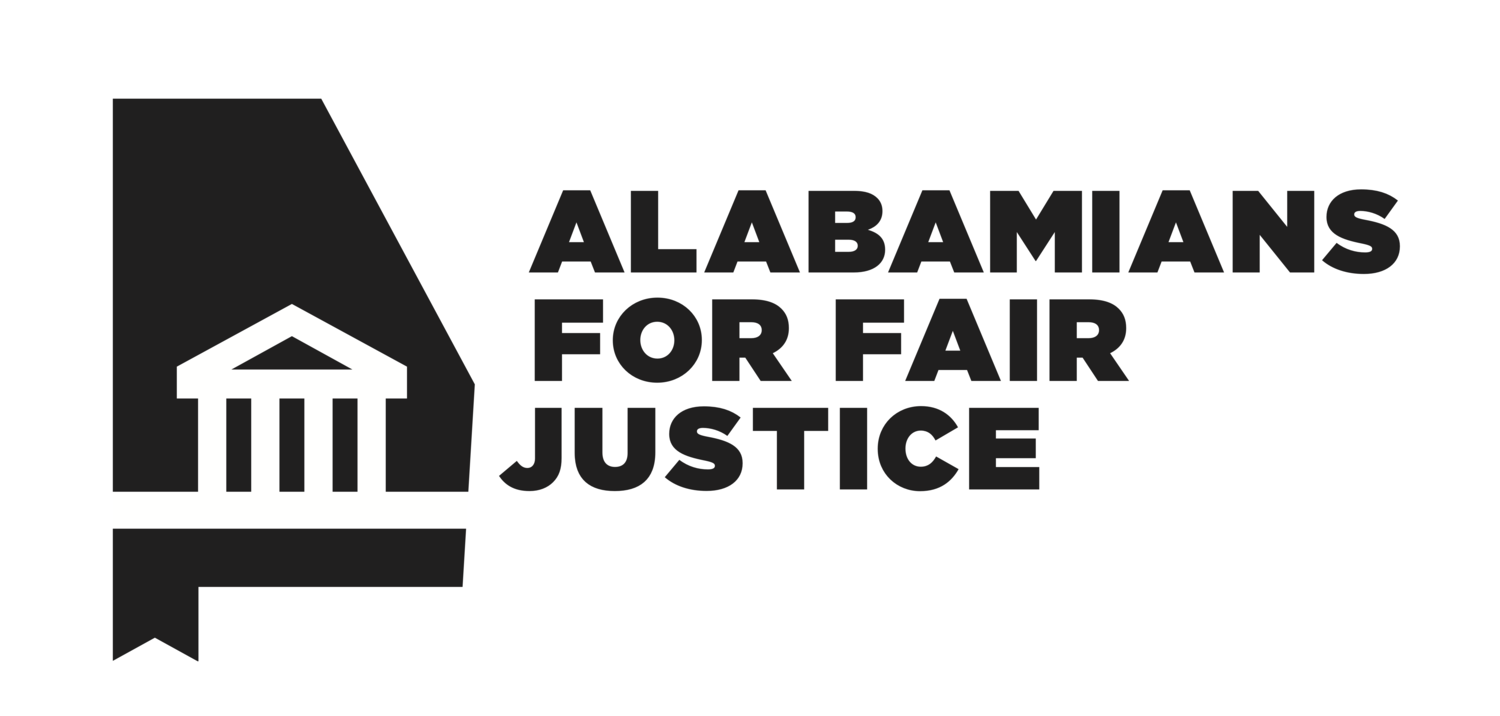Montgomery, Ala. — Alabama Gov. Kay Ivey today announced that the state has awarded contracts of undisclosed monetary amounts to CoreCivic and Alabama Prison Transformation Partners for the construction of three new mega prisons.
The following statement is from Alabamians for Fair Justice:
“Since the ratification of the 13th Amendment, states have been building prisons to warehouse and re-enslave humans. Predictably, Black people went from being a small minority of people incarcerated to the majority in less than 10 years. That trend continues in Alabama and other states to this day. Building new prisons will not solve the problems facing Alabama’s prisons: overcrowding, understaffing, inhumane treatment, excessive force, and sexual and physical violence. A prison plan focused only on building more cages will only serve to feed the prison industrial complex, resulting in the disproportionate incarceration and exploitation of even more Black and Brown people to pad the pockets of private prison corporations.
“CoreCivic, tasked with building new prisons in Elmore and Escambia counties, has a deplorable history of profiting off of people by jeopardizing the safety of its facilities and the people imprisoned within them for the sole purpose of making more money. Alabama Transformation Partners, a company with no publicly available information or presence on the internet, and no experience with construction, will be entrusted with erecting a mega prison in Bibb County. Prisons cage real people with medical, mental health, and rehabilitative needs. ATP has shown no ability to construct facilities capable of meeting these needs. Indeed, neither has the State of Alabama.
“People in Alabama’s prisons are dying. They are dying at the hands of brutal and corrupt guards and leaders who have done little to address the culture of violence, medical neglect, and drug smuggling that ADOC staff engage in. They are dying from COVID-19. They are dying as a result of inadequate health care. They are dying because of inhumane conditions. They are dying from corruption that allows drugs to flood the prisons. And people will continue to die if the only action officials take is building more prisons.
“If Alabama truly wants to address the prison crisis, lawmakers must pass sentencing reforms like abolishing the Habitual Felony Offender Act and making the 2013 Sentencing Guidelines retroactive; investing in prison alternatives and community resources such as diversion programs, mental health treatment, and drug treatment; requiring the parole board to release more people; and creating a diverse and inclusive oversight committee to hold prison officials accountable for working to end the abuse of incarcerated people by ADOC correctional officers.
“The U.S. Department of Justice has already told us twice that brick and mortar is not the answer to the conditions that the DOJ found ‘routinely violate the constitutional rights of prisoners.’ Data-driven, humane policy solutions are needed now. It is time for the State of Alabama to put people over political interests and corporate profits.”
-
Alabamians for Fair Justice is a coalition of individuals directly impacted by the criminal justice system and supporting organizations united to advance bold, evidence-based solutions to Alabama’s prison crisis. A full list of our members can be viewed here.

